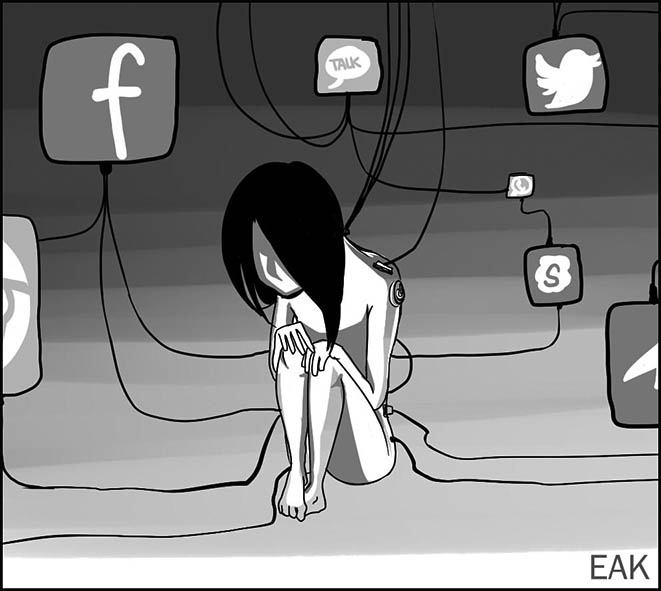A week ago, NFL superstar Adrian Peterson was arrested and ultimately suspended for child abuse. He was reported to have "recklessly or by criminal negligence cause bodily injury" to his son, and authorities say Peterson beat his four-year-old son with a "switch," a slim, leafless tree branch. Strangely, this particular piece of news, a hot topic for many in North America, did not seem so foreign to me. Caning and other forms of "physical disciplining" has existed in Korea for decades and is nothing out of the ordinary for students. In Korea, students face caning in their schools, let alone in their homes. On many instances on the news I see how there is a blurred line on how adults view child abuse in comparison to discipline. How thin is this line between child discipline and child abuse, and can Peterson's actions be justified at all?

Discipline is an intentional consequence given by an adult for inappropriate action and meant to be a learning moment for the child. It is not an emotional or an angry reaction. Child abuse arises when the adult acting out in anger escalate to hitting with an intensity that leaves notable marks on the child's body. This leads to say that not all physical discipline is abuse, just as how there is a difference between verbal discipline and vulgar berating threats. If we can differentiate on the verbal side between "don't interrupt when I'm speaking" and "shut up" followed by a few vulgarities, one should know when to stop on the physical side too. It is pretty common for Korean students, when caned, to have marks left on their body Ð this precisely is an example of teachers or parents crossing, or, ignoring the line.
Though there possibly exist Korean parents that may sympathize with Peterson, the footballer's actions can never be justified. Actions like carrying a distraught child out of the store, telling him to hold an adults' hand when crossing the road are physical exertions that are imposed on the child against his will. All discipline, including examples above are meant to help a child avoid harm, not face it. Children are taught to exert control over their actions, such as resisting the urge to buy whatever they want, or sitting down calmly in a restaurant. Peterson's son was trying to keep control, but Peterson went too far trying to keep control over his son. Just as "a man who feels a loss of control often feels like his worth is being challenged," any situation like this can spiral into abuse of power and this is what can happen in other domestic violence. Spanking may be quick and effective, there are other ways to convey your message as sternly as it otherwise would have been, such as taking away privileges or imposing time outs. It becomes apparent that an adult who cannot differentiate between discipline and abuse is the one who has actually lost control.
The truth is, it is equally tragic to see those who are beaten often become beaters too. Furthermore, abusive behaviors toward the children can lead to insecurity and other stability issues, such as being constantly worried frightened. Nobody likes feeling out of place and hated. Most of the time, abuse results from frustration and impatience. However, I believe that no reasons can justify any horrid actions that afflict your most loved ones.
It is indeed an uncomfortable fact that child abuse is not at all a foreign piece of news for Koreans. Most of us have experienced and may be led to think that we have "turned out fine" even after spanking. Also, in Korea, many hide behind the excuse of "culture," that abuse is a common practice. However, a child is a child for a reason; they never have bad intentions, nor do they have many previous experiences to have learned fully from their actions compared to the adults. As an adult, it is important to be patient and tolerating of children's behavior and assessing suitable reactions to their shortcomings. Their physical scars may vanish but the emotional scars may remain for a very long time. I'd like to sum up with this quote that expressed my opinion clearly while I was preparing for this article: "What 'lesson' any of these punishments teach a child other than that big people can hit smaller people with impunity is beyond me."

